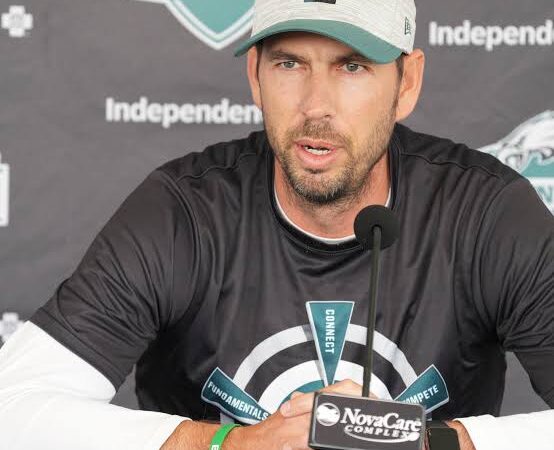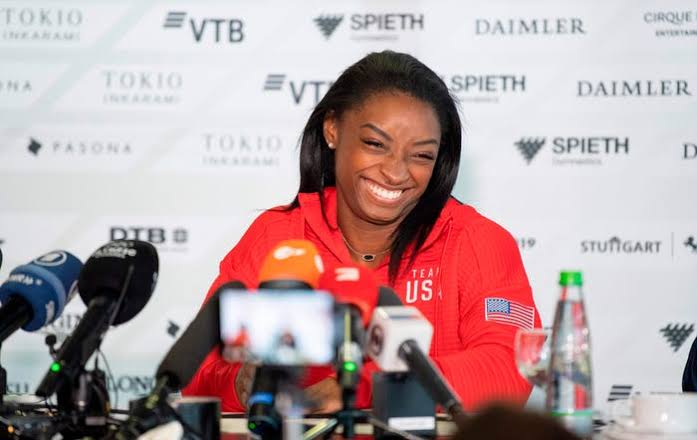The three-time Vikings Pro Bowler is expected to sign a $110 million contract.

The Minnesota Vikings have decided not to extend Daniel Hunter’s multi-year contract this offseason.
This is a decision that will cost the franchise one way or another.
Hunter is set to become a free agent next March, and his reworked contract includes a clause that prohibits the Vikings from applying the franchise tag to him.
That means the only way Minnesota can keep Hunter from leaving is to sign him to a new contract, and that won’t come cheap.
Bleacher Report’s Christopher Knox reported Monday, Nov. 13, that Hunter will sign a four-year, $110 million contract in 2024 after hitting the open market and starting a 10-week bidding war for the most successful NFL passer.
I predicted this. .
Hunter is a versatile defender, so he will attract the attention of any team in need of a pass rush and adequate cap space.
He is coming off a career season under first-year Vikings defensive coordinator Brian Flores, but has speed experience at the defensive end position and at linebacker.
Flores’ system uses a three-man front, allowing Hunter to come off the edge as a dedicated pressure man.
Blitzing has been a big part of Flores’ strategy this season, and no team has attacked as quickly.
Montez Sweat, who just signed a four-year, $98 million contract extension with the Chicago Bears, could be a starting point for the 29-year-old Hunter.
Advanced analysis could see Daniel Hunter get a big payday in 2024.
Hunter’s scoring stats in 2023 are beyond criticism as he has proven to be the most efficient passer by traditional standards.
Currently leads the league in sacks (11) and tackles for loss (14).
He also had 20 pressures and 12 QB hits in 10 games.
Hunter is a three-time Pro Bowler and is guaranteed to win the honor for a fourth time in 2023.
Those numbers from a contract year give Hunter significant bargaining chip in an era of football where almost every QB loses the ball between 2.4 and 3 seconds after the snap, according to ESPN Next Gen Stats.
Hunter’s problem is that he wins the passing game at a slightly below league average rate and gets to opposing players slightly slower than league average.
Free agent prospects, including the Vikings themselves, use those values for Hunter at the negotiating table, giving Flores’ system a lot of credit for Hunter’s success.
However, Knox pointed out that a number of NFC rivals run programs suited to Hunter, and those teams may be less interested in his stats.
“The Tampa Bay Buccaneers [like the Vikings] will try to separate Shaq Barrett and Joe Tryon-Shoyinka using a similar scheme. If Tampa can get Hunter into the rotation, it would be a perfect landing spot for him outside of Minnesota,” Knox wrote.
“The Detroit Lions also use a three-man front with Aidan Hutchinson as the special linebacker.
“He’ll be a big plus for Hunter Hutchinson and James Houston.”
The Vikings may not have enough money to extend Daniel Hunter.
Over the Cap (OTC) estimates Hunter’s price tag in 2023 at around $21.9 million, which is a reasonable starting point for hypothetical negotiations.
That number can drop each year as age and injuries affect a team’s expected performance.
The top five players in the NFL earn an average of $27.7 million.
This is the amount a team would pay a player for that position if they acquired a franchise.
Knox’s anticipated four-year, $110 million contract brings Hunter’s contract to exactly that amount ($27.5 million per year).
General manager Kwesi Adofo-Mensah gave Hunter a $17 million raise in the final year of his previous contract, with incentives to increase the amount to $20 million.
But if Hunter can go anywhere he wants, that kind of offseason deal probably won’t be enough.
OTC projects that the Vikings will have $38.1 million in cap space in 2024.
The point is that Minnesota needs to consider what could be a historic trade for wide receiver Justin Jefferson.
If he breaks the record for the biggest contract at the position, Jefferson will make more than $30 million per year over five years, with much of that money fully guaranteed.
The Vikings will also have to pay for the quarterback next season.
If that person is Kirk Cousins, the team could be expected to be worth upwards of $25 million to $30 million, which is a significant reduction from Kirk Cousins’ $35 million this year this.
Finally, Minnesota hurt themselves this offseason by not signing Hunter long-term.
Price will now face a difficult contract as the team looks to rebuild or lose the defensive tackle.






